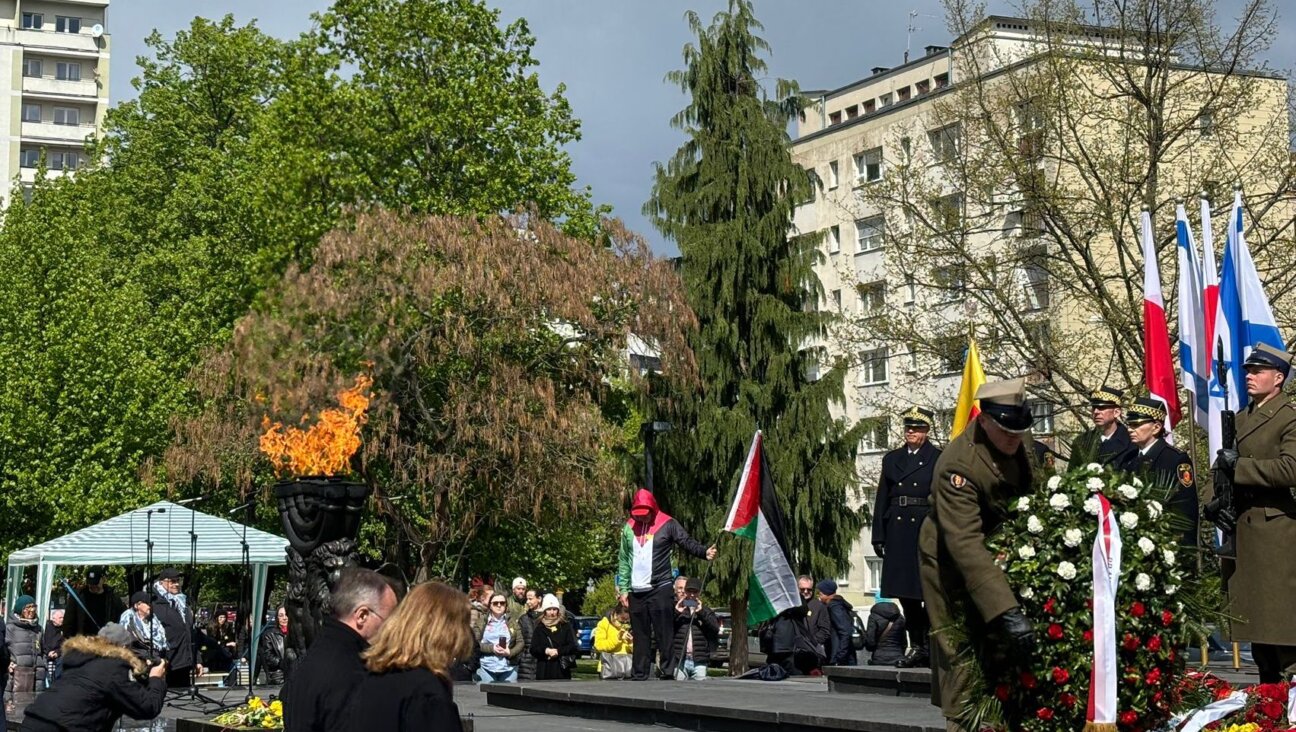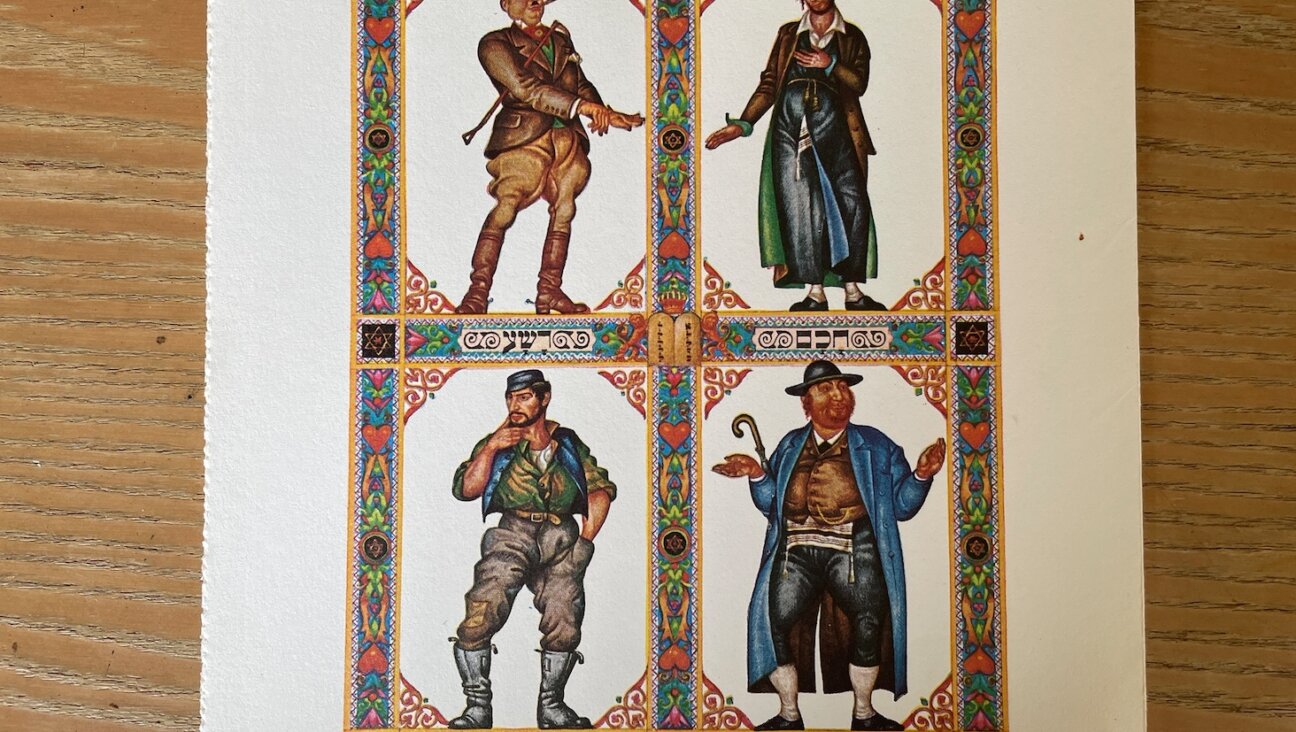Chris Lerman, 90: She Helped America Remember the Holocaust

Image by Courtesy of Lerman Family
I first met Rosalie Chris Lerman and her husband, Miles Lerman, in 1978 when I interviewed for the position of deputy director of the President’s Commission on the Holocaust. As they said in “Casablanca,” it was the beginning of a beautiful friendship.
In the almost 40 years that followed we worked together building the United States Holocaust Memorial Museum in Washington and later the Holocaust Memorial at Belzec, in Poland. During this time, I learned repeatedly that whatever Chris and Miles they did, they did together.
Miles, a World War II Holocaust survivor and anti-Nazi partisan, was a force of nature in his contributions to the construction, development and opening of the U.S. Holocaust Memorial Museum on the Capital Mall until the day he died in 2008. Rosalie, who continued on with the work they had shared, died May 19, at age 90 in Philadelphia. She suffered no wasting illness. “She just kind of ran out of gas,” said her son David Lerman.
It is a cliché that behind every successful man is a good woman, but Chris stood not only beside Miles but together with him. We travelled together to Eastern Europe numerous times. Chris was indispensable, offering emotional support and human insight, tempering her husband’s drive just enough that he did not run over people.
Rosalie was born in Starachowice, Poland in 1926, into a childhood decimated by the Great Depression. When the Germans invaded in 1939, her family was forced out of their home and ghettoized. Starahowice had a munitions factory complex described vividly by Holocaust historian Christopher Browning in his work Remembering Survival. Chris and her sisters were forced laborers there at a time when survival meant living another day, another hour.
When her mother was sent to a concentration camp, Chris, the middle child of three beautiful sisters, became responsible for her two siblings with whom she was sent to Auschwitz. All three sisters claim that the only reason they all survived was that each felt obligated to take care of the others. They lived with each other and for each other.
She met Miles Lerman after the war, and though he was immediately smitten by her beauty and grace, Chris was reluctant. She was but a teenager. and wanted to make up her for the six years she had lost. Miles was too serious. “Yet there was no resisting Miles,” their daughter Jeanette Lerman-Nuebauer told the overflowing audience at her Sunday funeral at Temple Beth Zion in Philadelphia. Everyone laughed knowingly. There was no resisting Miles.
They came to the United States, first to Brooklyn, and soon settled in Vineland, New Jersey, then a thriving Jewish community composed of new immigrants, or “greens” as survivors were then known. They began their new life on a chicken farm. Yet over time, Miles and Chris built a thriving business first in home heating oil and later as petroleum distributors. Their home was a gathering place for the community with celebrations and philanthropic causes, deeply Jewish and celebrative of all that life had to offer.
I have learned much from Chris. She was the rare person who kept growing throughout what others might regard as the twilight of life. At 65 she was more skilled, more nuanced, more wise than she was at sixty, and more skilled five, ten and even fifteen years later than she was in her earlier years.
The more she gave – and she gave so much, sacrificed such much, created so much — the more she became.
There were unifying themes to her life. First of all, a devotion to life itself: Having experienced death so intimately, she chose life and celebrated life in all its joys, with little bitterness and no real time for sorrow. Devotion to family: Jeanette and David and later their spouses, the grandchildren and great grandchildren. She and Miles were so deeply Jewish, culturally, passionately, historically and most especially in the pursuit of justice and a dedication to remembrance. She was dedicated to Israel not mindlessly but lovingly, grateful for its existence, mindful of its fate, concerned about its direction. And in every fiber of her being and every strength of body and soul she was devoted to the cause of Holocaust Remembrance.
In a documentary film, “The Upside of Memory,” she is featured revisiting Auschwitz with her grandchildren and describing her personal experiences of what took place there. She often lectured on college campuses after the film was screened.
Having faced death at so young an age, she faced her own end with neither fear nor bitterness. She knew the end was near and felt grateful for all that she had achieved. We are all mortal, she told me again and again. Her body gave out, but never her mind or her love. We spoke as we always did before Passover—the Seder was the highlight of her year, with family, food and the story of liberation—and even more recently as we planned a visit by me to see her in Philadelphia. Alas, I was too late.
Chris is survived by her daughter, Jeanette Lerman-Neubauer (and her husband, Joseph Neubauer), her son, David Lerman (and his wife, Shelley Wallock), 5 grandchildren, and 7 great-grandchildren, as well as sisters Hania Wilson and Renia Gelb.
Michael Berenbaum is Director of the Sigi Ziering Institute and a Professor of Jewish studies at the American Jewish University in LA. He worked with Chris Lerman on the US Holocaust Memorial Museum for 36 years.

I hope you appreciated this article. Before you go, I’d like to ask you to please support the Forward’s award-winning journalism this Passover.
In this age of misinformation, our work is needed like never before. We report on the news that matters most to American Jews, driven by truth, not ideology.
At a time when newsrooms are closing or cutting back, the Forward has removed its paywall. That means for the first time in our 126-year history, Forward journalism is free to everyone, everywhere. With an ongoing war, rising antisemitism, and a flood of disinformation that may affect the upcoming election, we believe that free and open access to Jewish journalism is imperative.
Readers like you make it all possible. Right now, we’re in the middle of our Passover Pledge Drive and we still need 300 people to step up and make a gift to sustain our trustworthy, independent journalism.
Make a gift of any size and become a Forward member today. You’ll support our mission to tell the American Jewish story fully and fairly.
— Rachel Fishman Feddersen, Publisher and CEO
Join our mission to tell the Jewish story fully and fairly.
Only 300 more gifts needed by April 30























